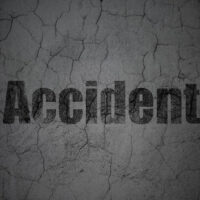Collecting Restitution in Florida

When someone fails to use reasonable care when required to do so and an accident occurs as a result, the injured party could recover damages by filing a personal injury lawsuit in civil court. In some cases, injuries to victims are the result not only of negligence, but also criminal acts. In these situations, the criminal and civil cases stemming from the accident are usually handled by separate courts, so even if a defendant is found not guilty of the criminal act, he or she could still be held liable for damages in civil court. When found guilty, the defendant could be required to pay restitution to the victim for losses that he or she incurred, in addition to any damages ordered in a civil suit. To learn more about whether your case will involve criminal charges and the potential effect this could have on your ability to collect damages, please contact a member of our personal injury legal team today.
Ordering Restitution
In Florida, criminal courts will only order restitution to compensate victims for certain costs, including:
- Damages caused directly or indirectly by the defendant’s crime; or
- Damages related to the defendant’s criminal episode.
Restitution is usually monetary in nature and intended to compensate victims who suffer the following losses as a result of a defendant’s unlawful actions:
- Property damage or loss;
- Monetary expense; or
- Physical injury or death.
The amount of restitution that a defendant will be ordered to pay depends on the nature of the damages. For instance, if a person suffered a physical injury as a result of the defendant’s criminal actions, the defendant could be required to:
- Pay the cost of necessary medical and professional services related to physical, psychological, and psychiatric care;
- Pay for physical and occupational therapy and rehabilitation;
- Reimburse the victim for lost wages incurred as a result of the injury; and
- Pay for the cost of funeral and burial services.
When an offense did not result in physical injury, a defendant can still be ordered to pay restitution for property damage and income lost by the victim as a result of the offense. However, it is important to remember that restitution only covers economic losses, so costs that are more difficult to quantify, such as pain and suffering and emotional distress, which are also known as non-economic damages, are not covered under a restitution order. For this reason, it is especially important for injured parties to speak with an experienced personal injury attorney about filing a claim in civil court, even if they have already received an award of restitution.
Call Today to Discuss Your Case with a Dedicated Personal Injury Attorney
If you were injured in an accident and the at-fault party is being charged with a criminal offense, please contact Boone & Davis at 954-566-9919 to speak with an experienced Fort Lauderdale attorney about how the criminal case could affect your own civil proceeding or settlement. A member of our legal team is standing by to help you schedule a free initial consultation at your earliest convenience.
Resource:
leg.state.fl.us/Statutes/index.cfm?App_mode=Display_Statute&Search_String=&URL=0700-0799/0775/Sections/0775.089.html
